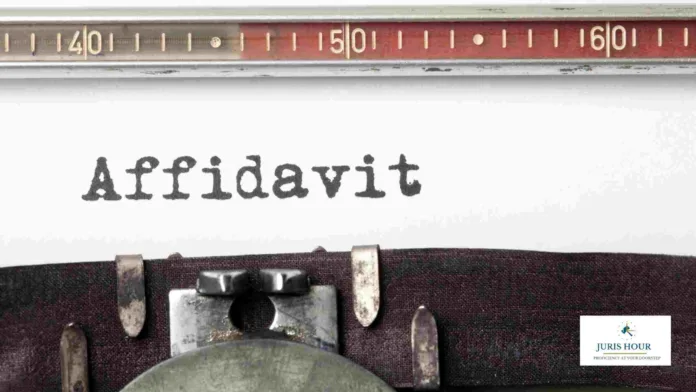The Chennai Bench of Customs, Excise and Service Tax Appellate Tribunal (CESTAT) has dismissed the appellant’s attempt to submit a notarised affidavit of an expert, Dr. Anuj Tyagi, as additional evidence as the affidavit had not been presented before the original adjudicating authority, denying the revenue department an opportunity to examine or rebut it.
The bench of Ajayan T.V. (Judicial Member) and M. Ajit Kumar (Technical Member) has observed that as per Rule 23 of the CESTAT (Procedure) Rules, 1982, additional evidence is permissible only in rare circumstances. The evidence cannot be admitted merely to fill gaps or strengthen a weak case, nor where the party failed to exercise due diligence earlier. The Tribunal found no compelling reason to allow the affidavit at this late stage.
The appellant had invoked the Supreme Court’s landmark decision in National Thermal Power Co. Ltd. v. CIT (1998), arguing that additional grounds of law should be considered at the appellate stage. While acknowledging that the Tribunal does have discretion to admit new legal grounds arising from facts already on record, the Bench emphasized that such discretion is limited and not an entitlement.
Referring to judicial precedents, including Chittoori Subbanna v. Kudappa Subbanna (AIR 1965 SC 1325), the Tribunal noted that appellate forums cannot ordinarily travel beyond the pleadings and evidence placed before the original adjudicating authority. Fresh grounds may only be entertained under exceptional circumstances, and through a proper application seeking permission.
The appellant had also contended that a previous final order suffered from legal infirmity (per incuriam), alleging that crucial chapter notes were not considered while determining the classification. The Tribunal rejected this contention, pointing out that the chapter notes had in fact been discussed in the earlier order.
Importantly, the Bench underscored that it had become functus officio — a legal principle meaning that once a matter is finally decided, the same authority cannot revisit the case unless expressly permitted by statute. Citing Hari Singh Mann v. Harbhajan Singh Bajwa (AIR 2001 SC 43), the Tribunal clarified that a party aggrieved by an unaddressed issue should seek review or rectification before the same Bench, rather than re-litigating it in a separate appeal.
The Tribunal held that the affidavit was not placed before the original authority, hence revenue did not have a chance to examine the affidavit or the expert if they so desired, and hence the evidence is not shown to be of an unimpeachable character, putting revenue at a disadvantage. In the normal course the Appellate Court should not travel outside the record of the lower court and cannot take any evidence in appeal. The parties are not entitled, as of right, to the admission of such evidence.
The court held that the admission of additional evidence also does not apply, when based on evidence on record, the Appellate Court can pronounce a satisfactory judgment. A party who had ample opportunity to produce certain evidence before the lower authority but failed to do so or did not show reasonable care or due diligence to do so or elected not to do so, cannot have it admitted in appeal. Further the additional evidence only seeks to fill in gaps or restore weak areas in the case. Hence for all these reasons, as is listed at para 6.3 above, the additional evidence in the form of an affidavit of Dr. Anuj Tyagi is rejected.
Case Details
Case Title: M/s. Avanti Feeds Limited Versus Commissioner of Customs (Import)
Case No.: Customs Appeal Nos.42136 of 2015
Date: 12.08.2025
Counsel For Appellant: B.Venugopal, Advocate
Counsel For Respondent: Anandalakshmi Ganeshram
Read More: Appeals Not To Be Kept Pending Because Appeal Filed Before HC: CESTAT

